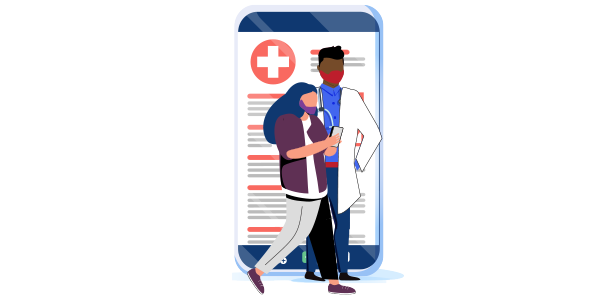
What About the Emergency Department?
What’s true for primary care and ambulatory settings, though, may not extend to emergency department and inpatient settings. Emergency physicians have no ongoing relationships with their patients (except for a few frequent utilizers). The evidence of benefit for digital note sharing in inpatient settings is far more limited and nonexistent for emergency departments.
Explore This Issue
ACEP Now: Vol 40 – No 03 – March 2021Still, there’s evidence that ED patients do not have adequate opportunity to ask questions of their clinicians. Only a small fraction of physicians report taking the time to confirm a patient’s understanding of discharge instructions.6 It’s reasonable to expect that easy access to ED notes could improve a patient’s understanding of their doctor’s concerns and decision making and even facilitate outpatient follow-up.
But those benefits are only realized if the shared ED notes are intelligible to the patients. We often write notes with an audience of fellow physicians, billing companies, or lawyers in mind. Abbreviations abound, as does extraneous information from elsewhere in the EHR designed to show coders how thorough we’ve been. While note bloat isn’t going away anytime soon, it behooves us to carve out a part of our documentation that clearly explains key findings and medical decision making. Just as important, now is an opportunity to reflect on the subtle ways in which documented descriptions of our patients could be interpreted as hurtful or even offensive, even though that is not our intent. (See below for some tips to limit patient misinterpretation of your notes.)
With this in mind, the new rules acknowledge some notes should not be shared. Specifically, “information blocking” is permissible and the sharing options in the EHR can be unselected in the following cases:
Safety concerns: Release of information may cause real harm to the patient, such as with intimate partner violence or notes regarding mental health and substance use.
Privacy concerns: Examples include the release of information on minors when parents have proxy access to the portal.
HIPAA violations have carried heavy fines from the outset. It’s not clear what will happen if a patient complains to the Department of Health and Human Services of information blocking (ie, that they could not access their chart digitally in a timely fashion). In the past, hospitals have been fined under this rule for failing to provide paper records.7 It will be important to stay up-to-date with your individual hospital’s policy as these regulations will be revised on a state and hospital level.
Pages: 1 2 3 4 | Single Page





No Responses to “Patients Will Soon Have Access To Clinical Notes—Are You Ready?”